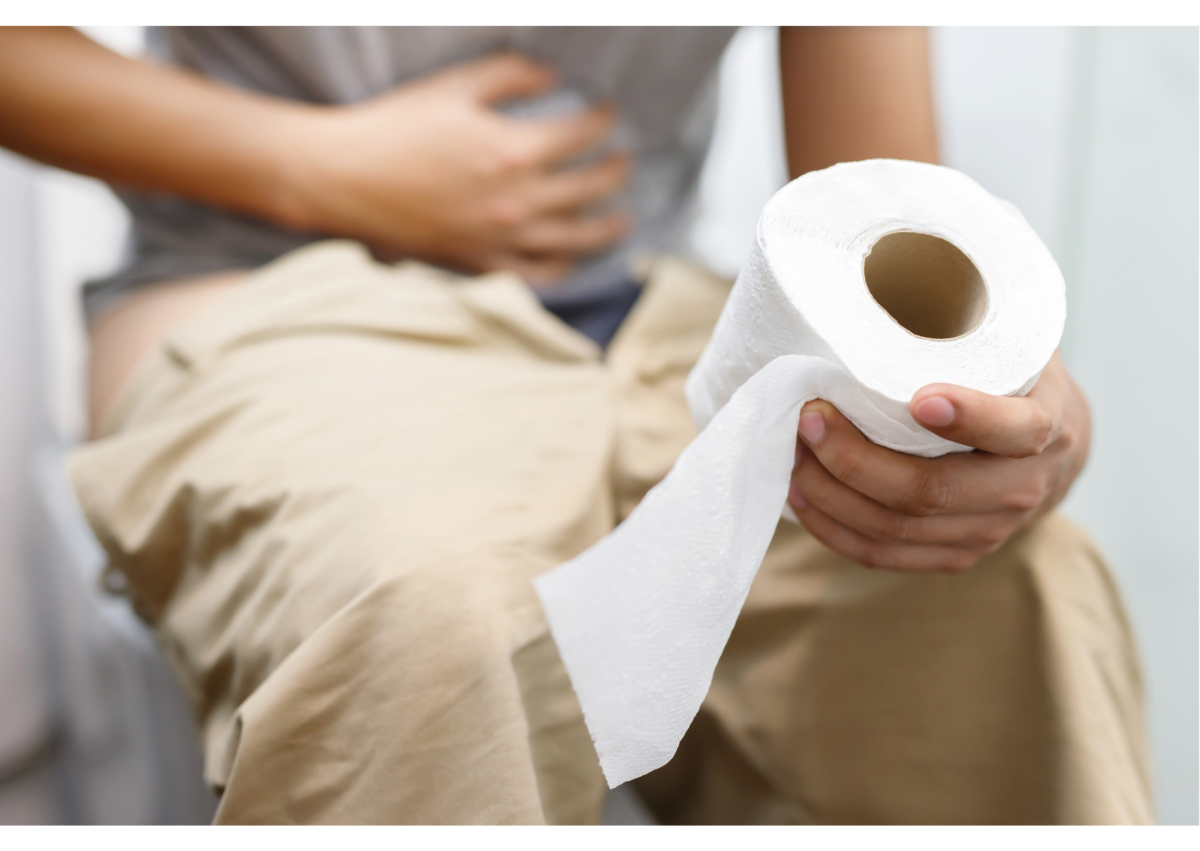What to eat with IBS attack – all types of IBS covered
- Lifestyle Advice
Figuring out what to eat with IBS attacks or flare-ups can be tricky and might be the last thing you want to think about at the time while trying to manage your symptoms!
IBS flare-ups can cause significant disruption to your daily activities, but it’s crucial to prioritize self-care during these times.
Knowing how to manage your symptoms effectively can help you return to your usual self.
This blog will run through what causes IBS attacks, what to eat (or avoid) with your IBS attack, and other strategies for managing it.

What is an IBS attack?
An IBS attack, also known as a flare-up, refers to a period when your IBS symptoms intensify. This can include abdominal pain, bloating, diarrhea, or constipation.
Both the severity and duration of IBS attacks might vary from person to person or from one episode to the next.
What causes an IBS attack?
Your IBS attacks might feel like they come out of nowhere, catching you off guard.
The cause of IBS attacks varies depending on your stress tolerance levels and personal dietary triggers.
Some common lifestyle factors that you may find trigger your IBS attack are:
- Stress
- Poor sleep
- Alcohol
- Caffeine
- Skipping meals
- FODMAPs
If you struggle to pinpoint your food triggers, the low FODMAP diet process will help you get more clarity.
How often will you have IBS attacks?
The frequency of IBS attacks will depend on your triggers and ability to avoid them.
You may also find that your gut becomes more resistant to triggers if you make positive changes to your diet and lifestyle to support a healthier gut.
What to avoid eating with an IBS attack
What you eat when you are having an IBS attack will be different from your usual IBS diet.
For example, you may know that you can usually tolerate certain FODMAPs, but during an IBS attack, you will be more sensitive to all FODMAPs.
It is therefore best to avoid all FODMAPs whilst having an IBS attack.
You should also avoid the following in your diet;
- Caffeine
- High-fat foods
- Alcohol
- Spicy foods
Should I skip meals during an IBS attack?
Although it can be challenging when you are having an IBS flare-up, it is essential that you do not skip meals.
Skipping meals may initially make you feel better as your gut is not working as much but it can cause your gut to slow down and cause constipation (3).
Skipping meals will also negatively impact your mental health and fiber intake which we know can worsen IBS symptoms.
Should I avoid fiber during an IBS flare up?
One of the myths you may have heard is that fiber worsens IBS.
Some high fiber foods can worsen IBS symptoms but these are foods that are high in FODMAPs – in other words, they are fermented in the gut and cause symptoms.
Other types of fiber will help your IBS to produce bulky poo which is not too fast or slow through your gut.
So it is important not to avoid fiber when you have an IBS flare up.
In fact, we regularly recommend fiber supplements as a tool to resolve symptoms. You can read more about this here: The Best Soluble Fibre Supplement
How much fluid should you drink during an IBS flare up?
When you’re in the midst of an IBS flare-up, you need to remember to stay hydrated to support normal gut function.
If you are experiencing diarrhea, you may be losing more fluid than usual, and if you are experiencing constipation, you will need fluid to help produce softer stools.

Other strategies to reduce IBS attack symptoms
It’s important to note that strategies for reducing symptoms of an IBS attack can vary from person to person, and what works for one individual may not work for another.
Overall, the aim is to reduce gut sensitivity so that you can tolerate the same foods and activities as before.
Some effective strategies to calm your IBS attack symptoms and get you back to your normal self might include:
- For stress-induced flare ups – try yoga for IBS or practice mindfulness (5)
- For pain – try peppermint oil capsules
- Diarrhea – Medications, if needed, such as Imodium
- Applying heat to your abdomen, such as a hot water bottle or warm towel, can help relax the muscles and alleviate cramping and discomfort during a flare-up.
Summary
The severity and duration of IBS attacks can vary between people, and many different things can trigger them.
It is key to avoid foods that trigger your symptoms. Opting for low-FODMAP foods can help prevent further triggering while your gut is already unhappy.
If you’re finding your flare-ups are getting worse, or you have new symptoms, speak to your GP.